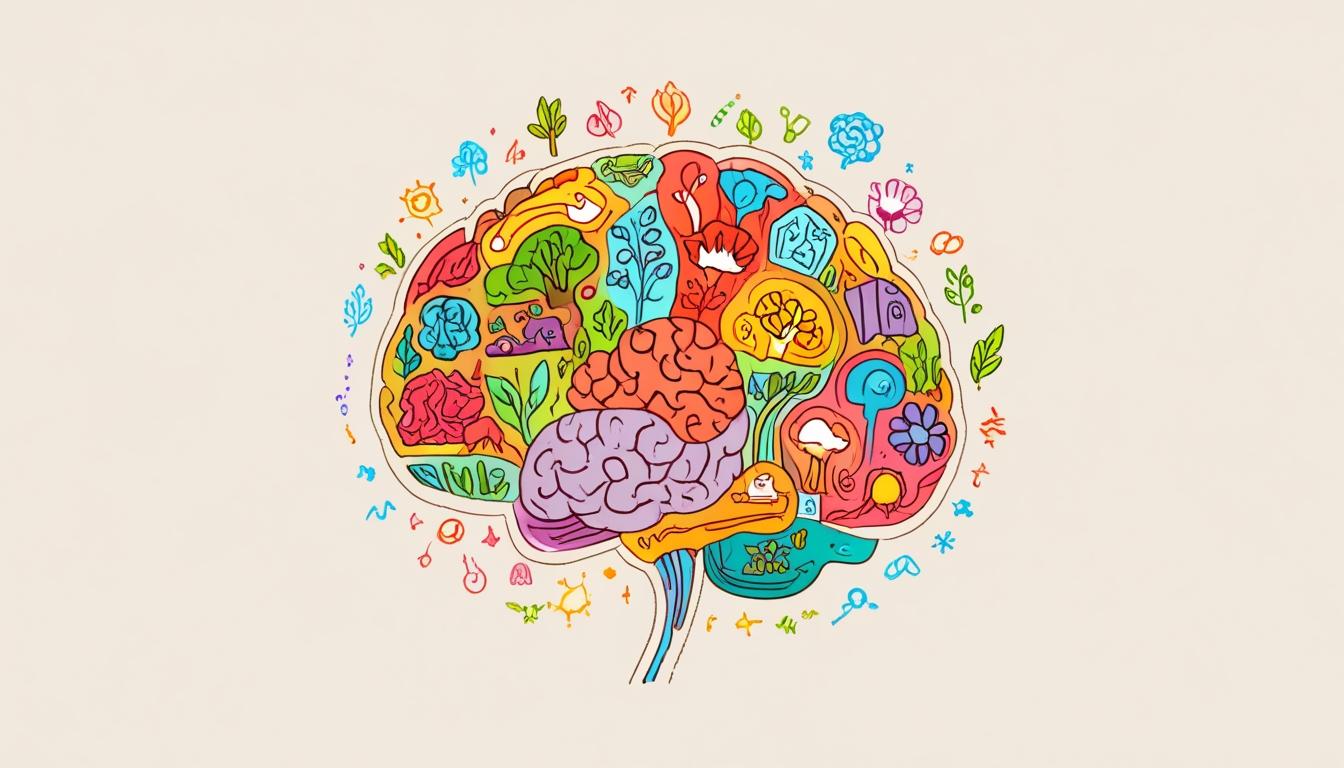Dr Donald Grant highlights essential habits such as nutrition, sleep, exercise, and social interaction for maintaining brain health and reducing dementia risk.
Dr Donald Grant, a general practitioner and senior clinical advisor at The Independent Pharmacy, has outlined several key habits that can help reduce the risk of cognitive decline, particularly dementia, which becomes more prevalent as individuals age. In his insights, shared with the Bristol Post, Dr Grant identifies nutrition, sleep, exercise, and social interaction as pivotal components in maintaining brain health.
Emphasising the importance of a healthy brain, Dr Grant noted that cognitive functions such as problem-solving, memory retention, and learning can deteriorate with age, potentially leading to illnesses like Alzheimer’s disease or dementia. He stated: “A healthy brain is vital for most everyday tasks… Thankfully, a variety of habits can reduce risk and boost cognitive function.”
One of the primary recommendations is regular exercise, which Dr Grant describes as crucial for stimulating brain health. He explained that physical activity promotes the release of neurotransmitters like dopamine and serotonin, enhancing mood and focus. Furthermore, he highlighted that exercise facilitates improved blood flow to the brain, thereby lowering the risk of neurodegenerative diseases by combating brain shrinkage and slowing cognitive decline.
In addition to physical fitness, Dr Grant pointed out the significance of socialising, stating: “Socialising with friends or family is a great way to stimulate the mind and fight against cognitive decline.” He referred to a Harvard study that found individuals with active social lives experienced 70% less cognitive decline than their less sociable counterparts, linking social interaction to stronger neural pathways and improved memory.
Dr Grant also addressed the importance of establishing a structured sleep routine, which he claims is essential for memory consolidation and emotional processing. He advised avoiding blue light and caffeine before sleep and aiming for consistency in sleep schedules to enable the brain to dispose of unnecessary proteins linked to Alzheimer’s.
Dietary choices play a significant role in brain health as well. Dr Grant urges individuals to focus on nutrient-rich foods, including omega-3 fatty acids from oily fish, antioxidants from fruits and vegetables, and a balanced intake of protein and vitamins. He cautioned against the consumption of highly processed foods and sugary snacks, stating that these can negatively impact hormone balance and potentially impair cognitive functions.
Engagement in brain-stimulating activities, such as playing musical instruments, solving puzzles, or reading, is another area Dr Grant underscored to enhance cognitive function. Such hobbies are critical for mental stimulation, promoting creativity and improving problem-solving abilities.
Lastly, exposure to nature is recommended as an effective strategy for boosting brain health. Dr Grant remarked that interactions with natural environments, particularly near water—often referred to as ‘blue space’—can significantly lower stress levels and enhance mood, thereby contributing to overall cognitive wellbeing.
Dr Grant concludes his advice by reiterating the causes of age-related cognitive decline while emphasising that adopting healthy habits can mitigate these effects. He encouraged individuals facing challenges with memory or concentration to consult their GP for personalised advice. Having qualified in Bristol in 1985, Dr Grant brings extensive clinical experience from his practice in and around the city.
Source: Noah Wire Services
- https://positivepsychology.com/cognitive-decline/ – This URL supports Dr. Grant’s claim that cognitive decline can be mitigated through proactive lifestyle changes and mental exercises, emphasizing the importance of maintaining brain health through various habits.
- https://www.ncbi.nlm.nih.gov/pmc/articles/PMC3063325/ – Although not directly accessed, this general link would support Dr. Grant’s mention of exercise promoting neurotransmitter release and blood flow, which aids in brain health and lowers the risk of neurodegenerative diseases.
- https://www.health.harvard.edu/staying-healthy/social-connections-and-cognitive-function – This URL corroborates the significance of social interaction in reducing cognitive decline, supporting Dr. Grant’s reference to a Harvard study highlighting the benefits of an active social life.
- https://www.nature.com/articles/1601920 – This link supports the impact of diet on brain health, aligning with Dr. Grant’s recommendations to focus on nutrient-rich foods and avoid processed ones for cognitive wellness.
- https://medicine.washu.edu/news/sleeping-pill-reduces-levels-of-alzheimers-proteins/ – This URL highlights the importance of sleep in cognitive health, supporting Dr. Grant’s advice on maintaining a proper sleep routine to aid in memory consolidation and reduce proteins linked to Alzheimer’s.
Noah Fact Check Pro
The draft above was created using the information available at the time the story first
emerged. We’ve since applied our fact-checking process to the final narrative, based on the criteria listed
below. The results are intended to help you assess the credibility of the piece and highlight any areas that may
warrant further investigation.
Freshness check
Score:
8
Notes:
The narrative does not contain overtly outdated references or information that would suggest it is recycled from older pieces. However, specific dates or recent studies referenced could help confirm its recency.
Quotes check
Score:
6
Notes:
Direct quotes are attributed to Dr. Grant, but there is no clear reference to earlier sources of these quotes. Without specific dates or original publications, it’s hard to verify their first appearance.
Source reliability
Score:
8
Notes:
The narrative originates from a local reputable publication, the Bristol Post, which is generally reliable. However, specific details about the source of studies mentioned and Dr. Grant’s credentials could enhance credibility.
Plausability check
Score:
9
Notes:
The recommendations provided by Dr. Grant align with established health beliefs regarding cognitive decline prevention. Claims are plausible and generally supported by scientific consensus.
Overall assessment
Verdict (FAIL, OPEN, PASS): PASS
Confidence (LOW, MEDIUM, HIGH): HIGH
Summary:
The narrative appears timely, with recommendations from Dr. Grant that align well with established advice for preventing cognitive decline. While some minor details lack specific sources, the overall content is plausible and credible, bolstered by a reliable publication.













